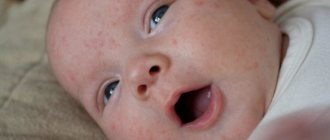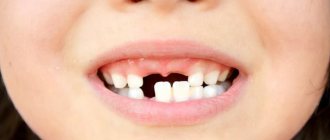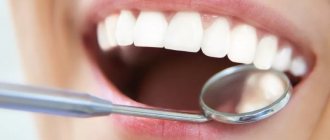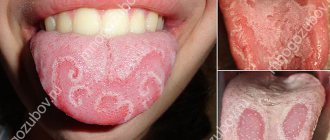What are the causes of such cracking:
- Weather + improper care
Cold and wind or hot sun contribute to dry lips, and if you do not take care of your lips in time and lick your lips, the skin becomes thin and cracks. It becomes difficult to heal cracks, since during talking, smiling and eating, the skin cracks again and again.
- Lack of vitamins A, B and E.
The skin loses strength, elasticity and moisture. Lips dry out and burst.
- Nasal breathing disorder
If a child breathes through his mouth, his lips instantly become chapped, especially in winter, and crack. If your baby does not have a runny nose, but still breathes through his mouth, contact an ENT specialist. Perhaps the problem is in the nasal septum or adenoids.
- Dehydration
Due to intense physical activity and accelerated metabolism, the child’s body spends a lot of fluid. Its absence primarily affects the condition of the lips - the only area of the skin that does not produce sebum.
- Stress, fatigue and increased physical activity
- Side effects of medications (diuretics, hormonal therapy)
- If a child eats and drinks something outside in winter
- Diseases of the gastrointestinal tract
Dermatitis in a child and psychosomatics
Skin health directly depends on a person’s mental well-being. Stress changes hormonal levels and metabolism, causing disruptions in the functioning of the immune system. Therefore, a calm emotional state will prevent exacerbation of the disease and delay the first appearance of symptoms.
When faced with contact dermatitis, analyze the causes and identify the allergen that caused it.
It's not always easy. To be sure of the correct diagnosis, conduct the necessary tests and receive treatment, come for a consultation at our center. In addition to treatment, you will learn how to properly prevent this disease. December 3, 2020
Author of the article: dermatologist Mak Vladimir Fedorovich
How to care for your lips?
- If cracks form, be sure to keep the wounds clean and do not let your child touch them with his hands or chew his lips. If an infection gets into such a crack, it can fester.
- For older children who will not lick the medicine from their lips, use healing creams and ointments.
- You can compensate for the lack of vitamins both with the help of tablets and with topical application. Many vitamins are available in the form of capsules, the contents of which are used to treat damaged areas.
- Monitor the child's emotional state. Perhaps constantly chapped lips are an indicator of increased stress, fears and stress.
- Pay attention to how much fluid your child drinks. The best alternative to juices and tea is clean drinking water. To avoid irritating your lips again, you can drink through a straw. Especially to avoid contact with hot food and drinks.
- And, of course, you can’t do without using hygienic lipsticks and lip balms. You can also apply baby cream, olive, castor and sea buckthorn oils to your lips.
La-Cri products are designed specifically to help the little ones. They are based on natural hypoallergenic components and do not use dyes or fragrances.
Lip balm provides daily care, softens and heals lips. And the cream can be used for enhanced healing and regeneration in severe cracks. La-Cri cosmetics are suitable for children from 0 months and will be safe even if the baby licks it from his lips.
Why do lips dry out?
Before looking for a way to quickly moisturize your lips, you should find out the cause of the problem. Depending on what formed the basis for the lack of moisture, you can choose a suitable remedy for complete restoration.
Causes of dry lips:
- Harmful environment. Cold, heat, windy weather and poor air quality. Cold and heat provoke a decrease in moisture in tissues. The condition worsens during strong winds.
- Stress. Situations when a person is very nervous and involuntarily licks his lips (a standard human reaction). The saliva that covers the delicate skin dries quickly, drying out the problem area.
- Medicines that affect the salivary glands, for example, drugs aimed at reducing appetite.
- Oral care products with high fluoride content. The element is characterized by a dehydrating effect. Thin skin is not able to retain moisture for a long time, as the dermis does on other parts of the body.
- Cosmetics: long-lasting lipsticks, matte formulations, tints and products with a dry/powdery effect. Pigments for artistic makeup. Powdering for better durability of conventional products speeds up drying.
- Unhealthy lifestyle: poor nutrition worsens the situation with vitamin saturation of the whole body. Lack of water (maintaining water balance is the key to health), alcohol, and tobacco are harmful.
- Diseases that cause dry mouth. These include allergic reactions, lip burns, dental diseases, inflammatory pathologies, bacterial and hormonal diseases.
Excessive dryness can be caused by a cold with a profuse runny nose and nasal congestion. With frequent inhalation and exhalation through the mouth, the lips become chapped and dry. During such a period, it is especially important to know how to keep your lips moisturized.
Experts' opinion
As a result of clinical studies conducted, it was confirmed that La Cree lip balm:
- relieves discomfort and dry skin;
- restores dry and chapped lips;
- moisturizes and protects the delicate skin of the lips from cold and wind.
The conducted clinical study proves the high efficiency, safety and tolerability of products for daily skin care of children with mild and moderate forms of atopic dermatitis and during remission, accompanied by a decrease in the quality of life of patients. As a result of therapy, a decrease in the activity of the inflammatory process, a decrease in dryness, itching and flaking was noted.
Sources:
- Fokina R.A., Atopic dermatitis: stages of development of classification forms, Siberian Medical Journal, 2007
- A.N. Pampura, A.A. Chuslyaeva, Modern approaches to the treatment of atopic dermatitis in children
- Yukhtina N.V., Modern ideas about atopic dermatitis in children
Photos of diathesis
Photo album on the disease
Perioral dermatitis: causes
Experts have not fully identified the causes of perioral dermatitis. However, it is generally accepted that this is a complex, multifactorial disease that has a wave nature (with stages of exacerbation and remission, respectively).
It is usually customary to associate the appearance of a rash around the mouth with hormonal changes that occur:
- when taking various medications, primarily when using ointments based on corticosteroids. Most often, corticosteroids are prescribed as one of the main means for the treatment of acne, rosacea, blackheads, eczema, etc. It is in the case of using corticosteroid ointment that perioral dermatitis can be detected in teenage boys;
- during pregnancy: this type of dermatitis is often diagnosed in women during pregnancy, which makes it possible to assume a hormonal origin of the disease, since pregnancy most often entails serious hormonal changes in the female body. For the same reasons, dermatitis most often worsens before the start of the menstrual cycle. Hormonal changes often occur in newborns, which fully explains the possibility of dermatitis in young children.
Among other things, such dermatitis can occur due to:
- abuse of cosmetics: most often we are talking about both decorative cosmetics (foundation and powder in the first place), and moisturizing creams, scrubs, tonics;
- using fluoride-containing pastes that can irritate the skin around the mouth;
- severe chapping of the skin, especially in the cold, as well as severe insolation (absorption of large amounts of sunlight);
- infections: often during the diagnostic process various infectious agents are discovered (streptococcus, staphylococcus, etc.), but specialists have not yet been able to identify a single agent that can cause the development of this type of dermatitis;
- failure of the immune system, which most often occurs due to a lack of vitamins in the body, especially in adolescents, who during the period of active growth experience a special need for vitamins. In this regard, it is also customary to include an imbalance of intestinal microflora, which occurs due to problems with the digestive organs, as provoking factors for dermatitis.
Perioral dermatitis: consequences
Dermatitis of this type is a very unpleasant dermatological problem, which, in the absence of timely professional intervention, can spread further over the skin of the face. In addition, usually the papules are destroyed, and in their place crusts form, the premature removal of which can cause hyperpigmentation (more intense coloring) of certain areas of the skin.
In case of large skin lesions, especially against the background of weakened immunity, including in children, purulent, weeping ulcers can form in place of papules (pimples), causing patients a lot of discomfort.
In addition, sometimes, in relatively rare cases, oral dermatitis can affect not only the area around the mouth, but also be found on the skin around the eyes, on the lower and upper eyelids. At the same time, dermatitis poses a potential danger to the patient’s vision (primarily if diagnosed in small children), and therefore requires timely consultation with an ophthalmologist
.
Folk remedies
On cracked lips in children, so-called jams often form on the sides. Traditional healers recommend treating them with earwax. Lubricate the wounds more often, everything will go away very quickly.
One of the main folk remedies is sea buckthorn oil. You can buy it at the pharmacy. Soak a cotton pad with the product and apply it to your lips. The procedure must be repeated several times a day.
A good remedy for dry lips is a mixture of fresh butter and honey. Apply it several times a day.
Pine buds need to be placed in a jar (fill the container halfway). Fill them with vegetable oil. The product should infuse for 2-3 weeks. The oil needs to be filtered and lubricated with it on the wounds on the lips until they heal. This remedy also helps with a runny nose and sore throat.
As soon as your lips begin to dry, lubricate them with goose or pork fat, or fresh butter.
Skin features in children
Children's skin differs in many ways from adults. She is too tender and vulnerable. In the first years of life, the sweat glands are not fully developed, so the child gives off excess heat through pulmonary breathing. Moreover, if the baby breathes dry air in a room where it is always hot, the load on the sweat glands increases greatly, and the skin begins to suffer. A baby's skin is practically never perfectly dry; this is due to its saturation with lipids (this is an innate feature). All chemicals destroy this lipid barrier, so various irritations often occur. Dry skin can also occur due to some health problems.
The skin on the lips of children is also very delicate and thin, so wounds and cracks often form on it.
Treatment of cheilitis
Treatment of the disease depends on the causes of its occurrence. For example, to treat allergic cheilitis, drugs are used that reduce the body’s sensitivity to allergens - antihistamines, as well as vitamins. Zinc ointment, anti-inflammatory creams containing glucocorticoids, salicylic acid, and sulfur are used externally. Avoid substances that irritate the mucous membrane of the mouth and lips. After eating, rinsing with chamomile infusion or soda is useful. To determine the allergen, it is necessary to conduct allergy tests.
For fungal cheilitis, antifungal drugs are prescribed in combination with vitamin B2 and ascorbic acid. An examination by a dentist and, if necessary, complete sanitation of the oral cavity and thorough treatment of problem areas with oil solutions of vitamins are recommended. To prevent relapses, a diet with limited carbohydrates is prescribed. In the treatment of exfoliative cheilitis, corticosteroid and photoprotective ointments, 2% boric salicylic acid ointment are widely used. In the presence of an exudative form of exfoliative cheilitis, Bucca radiation is effective.
Diagnosis of this disease is carried out by several doctors: a therapist, a dentist, an allergist. A combination of systemic (general) and topical (local) drug therapy produces a good effect.
Back to articles
Prevention
To prevent chapped lips in children, follow preventive measures. Simple recommendations will help protect your baby's delicate skin.
- Teach children to use chapstick from an early age.
- Show by personal example that you should not bite or lick your lips. Explain why.
- Humidify the air in the room, increase the amount of liquid to drink, especially during illness.
- Strengthen your immune system.
- The main thing is to immediately begin treating dry lips and do not let the condition develop into cracks.









